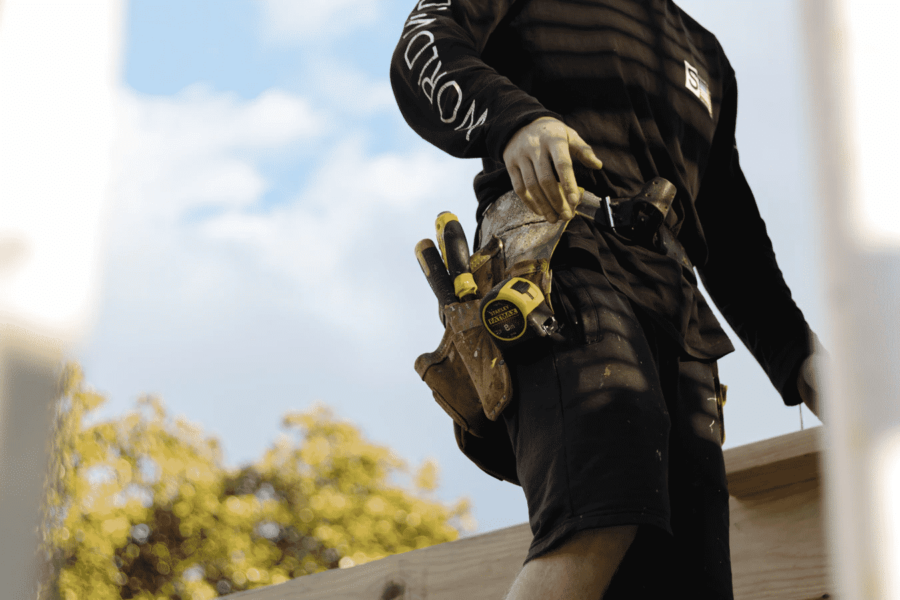Remember that episode of “The Office” when Dwight skips the small talk at the corporate holiday party and instead spends it inspecting the host’s house? He ends up on the roof examining the chimney. If you would rather be checking a house’s foundation than chit-chatting at a cocktail party and you have a sincere interest in the building trades, then learning how to become a home inspector is an excellent career move.
As any agent with a couple of transactions under their belt knows, home inspectors play a critical role in most real estate transactions. It’s a job that can impact people’s lives in real ways. In this article, we’ll show you how to become a home inspector, what skills are needed, and what to expect as a typical home inspector salary.
What Does a Home Inspector Do?
A home inspector’s job is to verify that a property being purchased is in good structural and mechanical shape and doesn’t have any hidden problems. A home inspector is a specially trained (and typically licensed, depending on the state) professional who checks the structure and systems of a property for issues.
Often, buyers engage the services of a home inspector to look at a home they are in the process of purchasing so they are aware of any potential defects. Lenders generally require a property to pass inspection before they’ll process a mortgage. But homeowners can hire inspectors at any time.
Inspectors generally examine a property’s electrical systems, plumbing, HVAC, windows, doors, foundations, basements, attics, roofs, appliances, and outdoor systems like gutters. In general, home inspectors leave items like fireplaces, pools, and solar panels to specialists.
At the end of their inspection, they create a report outlining any and all problem areas. It is then up to the buyer and seller (with the help of us Realtors) to negotiate who’s responsible for repairs.
Since home inspectors are a critical link in the residential home purchase process, they are almost always in high demand. In fact, some agents find working as a home inspector part time can be a lucrative side hustle.
26 Critical Questions to Ask Home Inspectors

How to Become a Home Inspector in 5 Steps
In all honesty, when it comes to home inspection licensure, it’s the Wild West out there. Some states require multiple weeks of training, tests, and applications—others have no requirements whatsoever. Regardless of where you live, here are the steps you’ll need to follow:
1. Research Your State’s Requirements
There are no national policies that govern the home inspection industry. Every state has its own set of rules and regulations. Select your state below to get a link to the best resource for your state’s specific regulations or local professional association for home inspectors.
2. Complete Your Prelicensing Education
If your home state requires prelicensing education, American Home Inspectors Training is our pick for preparing soon-to-be-inspectors for their new careers. They have online courses but also offer live, in-person classes in certain states if you prefer a more traditional classroom environment. It also doesn’t hurt that it’s run by one of our favorite professional education providers, The CE Shop.
3. Take & Pass Your Licensing Exam
Interestingly, even though there is no national regulation or licensing standard for the home inspection industry, most states that do require a licensing exam have all settled on the National Home Inspector Examination (NHIE).
Because the NHIE is standardized and pretty much everyone takes the same exam, it’s relatively easy to prepare for it. If your state has prelicensing education requirements, chances are your classes will be all you need. If your state requires an exam but no courses, your best bet is to do some exam prep work with American Home Inspectors Training to prepare for your big exam day.
Note that there may be requirements to fulfill in addition to your prelicensing education. You may need to provide proof of insurance and complete a certain number of ride-along inspections under the supervision of a licensed inspector, for example.
4. Complete Your State Application
States that regulate the home inspection industry typically require an application for licensing. Most state applications range between two and five pages in length. They often must be completed on paper and mailed to the state’s licensing board. Application fees typically range from $75 to $300.
5. Keep Up-to-date With Post-licensing Requirements
If you live and work in a state that requires a license to work as a home inspector, you will likely need to participate in continuing education classes and ongoing professional development.
These classes, seminars, and experience workshops help keep you in the loop in the home inspection industry. They’ll cover essential topics like tools of the trade and customer service strategies. They are generally valuable experiences for anyone looking to turn home inspection into a career.
Continuing education requirements vary from state to state, but typically, you’ll be required to complete between 10 and 20 hours of some kind of formal professional development every two years.
How Long Does It Take to Get Your License?
In states that don’t require prelicensing education or an exam to become a home inspector, you can enter this industry in less than a day. However, since most states require some form of licensing process, the typical time to go from unlicensed to working as a home inspector is about six weeks.
If you’re looking for more information on launching your home inspection career, we like this e-book from Kaplan. Kaplan is one of the oldest and most respected professional education providers in the nation, so it’s no surprise that its guide is packed with helpful information.
What Is a Typical Home Inspector Salary?
Earning potential is quite good for those considering entering the home inspection industry.
The average nationwide salary for a home inspector is $60,646 according to ZipRecruiter, and more if you own your own business. Generally speaking, inspectors charge between $400 and $650 per inspection. Your financial success as a home inspector will build upon the trust and confidence you generate with real estate professionals.
Get Hired or Start Your Own Business?
Once you’re licensed, you have several options as you start your career.
Start Your Own Home Inspection Business
A lot of newly minted home inspectors like the idea of starting their own home inspection company. After all, setting your own schedule, being your own boss, and collecting all the profits sounds exactly like what we do as Realtors. If you’ve got a clear path to new business success, this is a great route to take.
However, be prepared for slow growth in most markets. Unless you’re a seasoned business professional, there’ll be a learning curve. You’ll need to write a business plan to figure out how to market your services, nurture your leads, provide customer service, collect payments, satisfy Uncle Sam, and—oh yeah—actually inspect homes!
Join an Existing Home Inspection Company
Some states actually require new licensees to find a job with an existing company during a mandatory “apprenticeship” period. But even if it’s not required, choosing a reputable company to work for will allow you to set aside the nuts and bolts of running a business and focus on gaining valuable experience as a home inspector.
Start a Side Hustle
For many, home inspection is an ideal after-work real estate side hustle or weekend gig that can eventually transition into a full-time role. In the same way that many real estate agents start part time, many professionals will start doing home inspections on the side to supplement their income.
This is particularly common in the building trades, because those with experience building homes already possess the knowledge needed to thoroughly assess a home’s condition.
What Skills Do You Need to Be a Home Inspector?
First of all, home inspection is a highly active job. Inspectors need to get in narrow spaces, carry equipment, climb ladders, and cover the entire width and breadth of a property.
Secondly, inspectors need to know the trade. I once had a whole deal almost implode because an inspector misidentified an electrical line as polybutylene and insisted the whole house needed to be replumbed. Don’t be that guy. You don’t have to be a master electrician or plumber, but you have to know enough to see what’s working correctly and what might be a problem for future owners.
You also need to be a good businessperson. If you don’t answer the phone, respond to emails, or have good follow-up, you’re not going to be able to earn a living as a home inspector. Make sure customer service and good communication are a priority. For real estate agents, a skilled and reliable home inspector is worth their weight in gold. If you can build a loyal client base of real estate agents who trust you and you hone your skills through experience, you’ll have a successful formula for income growth and success as a home inspector.
Finally, a home inspector needs to operate with integrity. Major life decisions are based on these reports; fortunes traded based on information confirmed by a home inspector. Honesty and transparency are key.
FAQs: How to Become a Home Inspector
We gathered some of the most common questions from our readers about how to become a home inspector to help you better understand this field within the real estate industry. If you have additional questions, please ask them in the comments section below this article. We’ll be happy to respond.
Are home inspectors in high demand?
Yes. Since home inspectors are a critical link in the residential home purchase process, they are almost always in high demand. But since the home inspector’s role is so closely tied to real estate transactions and the market in general, economic fluctuations often result in changes in consumer demand for inspection services.
Is insurance required?
Not every state requires professional insurance for home inspectors, but many do. Similarly, the type of home inspection insurance required varies based on where you live. The most common type required is called Errors and Omissions insurance (often referred to as E&O).
As in a real estate brokerage context, E&O insurance protects you against liability should you make a mistake on a home inspection report that winds up costing another party money. Professional liability insurance protects you and your employer in the case of an accident or personal injury on a job site.
There are plenty of options out there for professional insurance providers. We’d like to suggest that you check out The Hartford. They offer a wide range of insurance products to meet the needs of home inspectors in just about every state.
Bringing It All Together
Ready to move forward with a new career in home inspection? Congratulations! Feel free to ask any questions in the comment section. Already been through the process? Leave any tips below.








Add comment